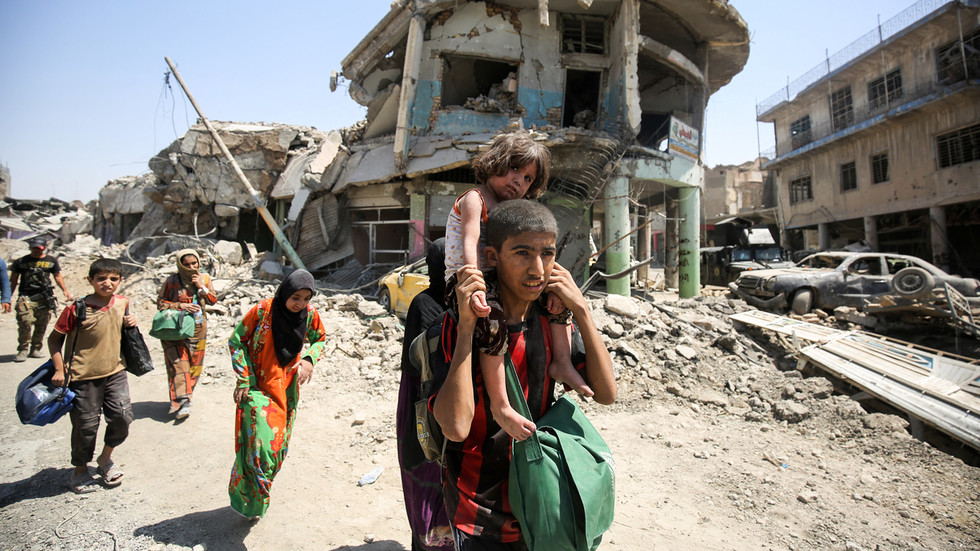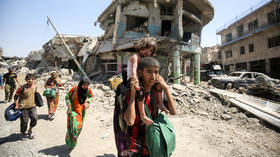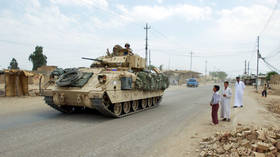
A joint media and NGO probe found at least two, and as many as 26, civilian victims of British airstrikes

FILE PHOTO. An Iraqi family fleeing Mosul on July 5, 2017, during the offensive by Iraqi government troops against Islamic State (IS) terrorists. © AHMAD AL-RUBAYE / AFP
The Royal Air Force did in fact kill civilians during the bombing of Iraq aimed against Islamic State terrorists, according to an investigation by the Guardian and the nonprofit Airwars, published on Wednesday. The British government continues to insist it did not kill any noncombatants.
The UK joined the US-led coalition against Islamic State (IS, also known as ISIS) in 2014, and carried out multiple airstrikes in Iraq and Syria through 2020, dropping more than 4,000 bombs. The coalition has acknowledged 1,437 civilian deaths during that period, without revealing which countries were responsible for how many.
According to official figures from the Ministry of Defence, the strikes killed 1,107 militants and one civilian in Syria, and 3,052 militants and not a single civilian in Iraq. The Guardian and Airwars, a UK-based transparency nonprofit tracking civilian deaths, investigated the claim.
The news outlet and the NGO reviewed over 1,300 coalition documents released to the New York Times as well as MoD documentation released to Airwars, to identify 43 strikes that RAF may have been involved in. They narrowed it down to eight strikes in the vicinity of Mosul, and sent researchers to conduct interviews.

Read more
In the six airstrikes identified as “likely” carried out by the RAF, the coalition had acknowledged 26 civilian casualties. Another two civilian deaths were acknowledged in a confirmed RAF airstrike on January 9, 2017, which London described as killing two militants.
In addition to killing entire families, British missiles maimed and seriously injured several children, according to the investigation.
“There is no evidence or indication that civilian casualties were caused by strikes in Syria and Iraq,” a Ministry of Defence spokesperson told the Guardian, insisting that “rigorous processes” are in place to minimize civilian deaths.The British government has also refused parliamentary requests to explain how it tracked civilian casualties.
While agreeing that the UK has some of the best civilian protections in place, retired air marshal Greg Bagwell told the Guardian that insisting there had been zero casualties was a “stretch.”
“If we were saying we were 90% better than everyone else, that might be a credible argument,” he said. “When you keep saying the number is zero and therefore we’re 100% perfect, it clearly becomes hard to sell that.”
The Guardian noted that Britain passed a law in 2021 putting a six-year statute of limitations on any claims for damages, so that even if London eventually admits to the killings, the survivors will not be able to seek compensation.




